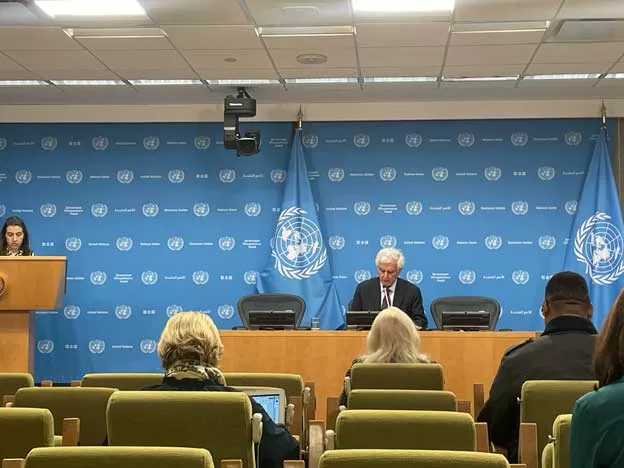In 2025, Haiti is facing a humanitarian crisis of catastrophic proportions. Amid the ongoing gang wars, the country is suffering from alarming rates of displacement, child recruitment, food insecurity, physical violence, and sexual violence. The situation has escalated rapidly in the past year alone, leaving the nation in a state of despair and desperation. The national police have been struggling to keep the gang activity under control, and the situation seems to be getting worse with each passing day.
According to figures from the United Nations, Haiti is home to one of the largest concentrations of armed gangs in the world. These gangs, often referred to as “gwo fanmi” or “big families,” have been wreaking havoc in the country for years. But in recent times, their activities have intensified, and they have become more brazen in their attacks. They have gained control over large portions of the country, making it difficult for the government to provide basic services and security to its citizens.
One of the most devastating consequences of the gang wars is the displacement of thousands of Haitians from their homes. Families have been forced to flee their communities in fear of their lives, leaving everything behind. The displaced people are living in overcrowded and unsanitary conditions, with limited access to food, clean water, and healthcare. Women and children are particularly vulnerable, as they are at a higher risk of physical and sexual violence. The situation is dire, and urgent action is needed to address this crisis.
The recruitment of children by armed gangs is another alarming issue that has been on the rise in Haiti. These vulnerable children are lured into joining gangs with false promises of money and protection. Once recruited, they are forced to commit heinous crimes and are at constant risk of getting injured or killed. The future of these children is being stolen from them, as they are denied the opportunity to receive an education and build a better life for themselves.
Food insecurity is another major concern in Haiti. The ongoing violence has disrupted agricultural activities, making it difficult for farmers to grow and harvest crops. This has led to a severe shortage of food, and many families are struggling to put a meal on the table. Malnutrition rates among children have also increased, putting them at risk of life-threatening illnesses. In a country where more than half of the population lives in poverty, the food crisis has only added to their suffering.
The national police force in Haiti is doing its best to contain the gang activity, but they are facing numerous challenges. With limited resources and manpower, it is an uphill battle for them. The gangs are well-armed and organized, making it difficult for the police to control them. The lack of trust and cooperation from the community also hinders their efforts. The police are facing constant threats and attacks, and many have lost their lives in the line of duty. They are in dire need of support, both from the government and the international community, to effectively address this crisis.
It is heart-wrenching to see the once vibrant and resilient nation of Haiti brought to its knees by the ongoing humanitarian crisis. But amidst all the chaos and despair, there is still hope. The people of Haiti have shown incredible resilience and strength in the face of adversity. They are determined to rebuild their country and create a better future for themselves and their children.
The international community must step up and provide urgent assistance to Haiti. This crisis requires a collective effort, and no country can do it alone. Humanitarian aid is crucial in providing food, shelter, and medical care to those affected by the crisis. It is also essential to support programs that provide education and vocational training to children and young adults, giving them hope for a better future.
Moreover, it is crucial to address the root causes of the gang wars in Haiti. This includes addressing issues of poverty, inequality, and lack of opportunities for the youth. Investment in education, job creation, and community development can go a long way in promoting peace and stability in the country.
In conclusion, the humanitarian crisis in Haiti in 2025 is a dire situation that needs immediate attention. The country is facing multiple challenges, and the consequences are devastating. We cannot turn a blind eye to the suffering of our fellow human beings. It is time for the international community to come together and support Haiti in its time of need. Let us stand in solidarity with the people of Haiti and help them rebuild their nation and their lives. Together, we can make a difference.



